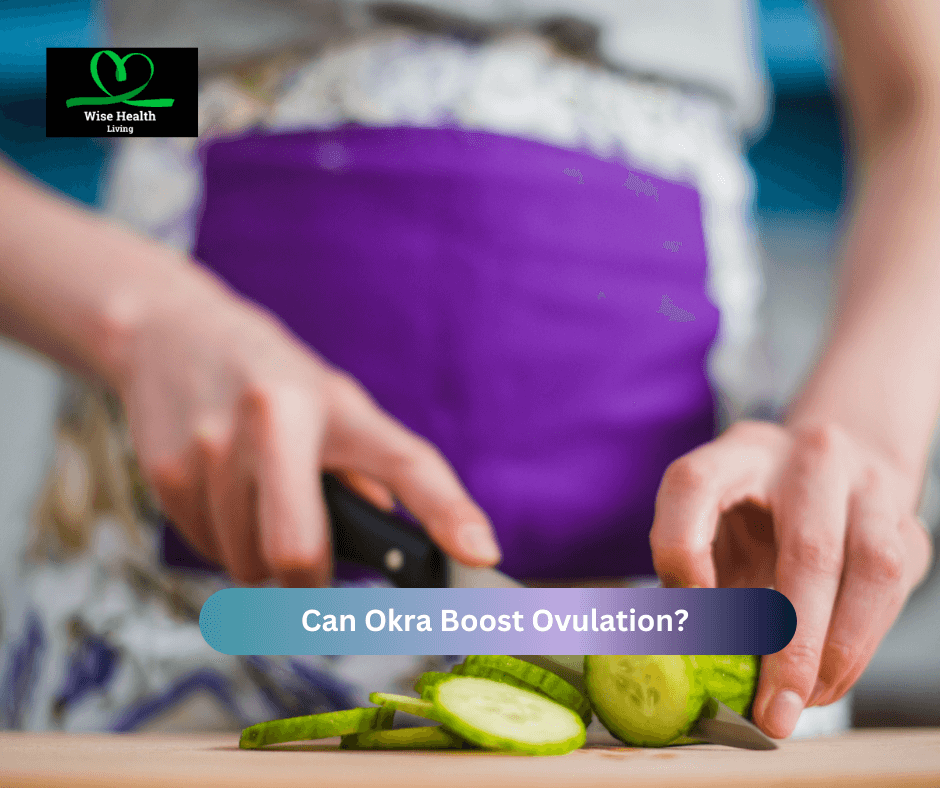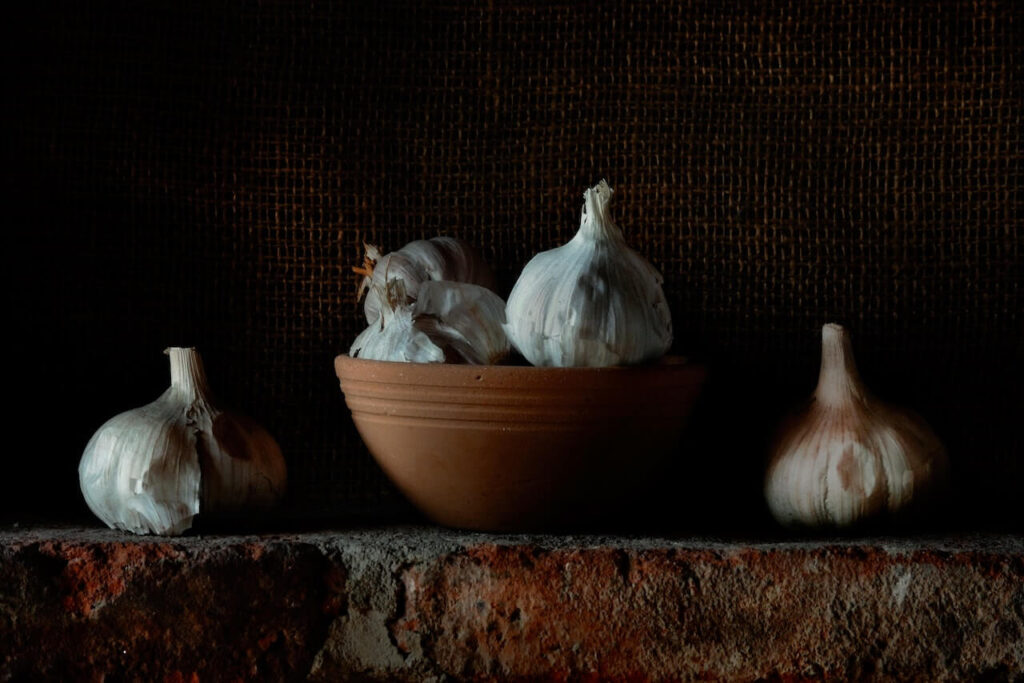Can Okra boost ovulation? That is the question in the hearts of many women that have been forced to find solutions to their fertility and reproduction problems.
There are various challenges facing women today in the aspect of reproduction and fertility, and many of them are forced to seek foods that can help level the playing field and grant them that access to carry their own children.
There are many discourses on foods that can help a woman take in -and not just that -keep it in. Guava for fertility and Okra are two major examples. In this article, we will be “torch lighting” on the unclear question asking, “can Okra boost ovulation?”
Whether used to make plain Okra soup to assist with some pepper stew; turned to cooked using palm oil; cooked with ogbono and ugwu for the ultimate “draw soup” or put in with other greens in a salad. Okras have been a part of the Nigerian diet, cutting across cultures, languages and cuisines.
What are Okras?
Called “ọ́kụ̀rụ̀” in Igbo, “Ila” in Yoruba, and kubḕwā in Hausa languages, Okra is known in many English-speaking countries as ladies’ fingers or ochro, it is also argued to have originated from either West Africa, Ethiopia, Southeast Asia, or South Asia.
The vegetable is a flowering plant in the mallow family that has edible green seed pods. It is usually cultivated in tropical, subtropical, and warm temperate regions around the world. Many people and countries use okra in their cuisines.
The first time the word “Okra” was used internationally is believed to have been used in colonial America in 1679, specifically in Virginia. It was a variation of the Igbo word “ọ́kụ̀rụ̀”. Some believe it to have been from the mouths of Igbo slaves brought to the colony to farm on the plantations.
In the world, Okra has gained a lot of ground with more than 10.8 million tonnes of okra produced globally in 2021. Nigeria is on that list producing about 18% of the global numbers, Mali over 6%, and India roughly 60% as the world’s largest producer.
Okra pods can be eaten raw, cooked, pickled, in salads, or cooked. It can also be prepared with beef, mutton, lamb, or chicken, and dietitians strongly suggest doing so.
Exciting Read – What is the Food That Kills Sperm in The Female Body?
Health benefits of Okra
Raw Okra is believed to contain 90% of water, 2% of protein, 7% of carbs, and very little fat. This translates Okra as being great for people who are diabetic, obese or have to change their diet due to high levels of cholesterol in their body. This points to the fact that Okras are useful for people with Obesity, diabetes and cardiovascular disease.
Okra is a strong source of dietary fibre, vitamin C, and vitamin K in a 100-gramme reference dose, and it also contains moderate amounts of thiamine, folate, and magnesium. Okra also provides some iron, niacin, phosphorus, and copper to the human body.
Okra can interact with diabetes and blood thinner medications, it is also rich in oxalates so excess intake may cause kidney stones, especially without regular water intake. Okra, its pods, and its seeds are rich in antioxidants such as flavonoids, phenolic compounds, and flavonoid derivatives like quercetin and catechins. These substances, in the opinion of scientists, could aid in reducing the risk of cancer.
Additionally, according to reliable scientific sources, these substances may have antimicrobial and anti-inflammatory properties. Folate is essential for preventing issues for the developing foetus during pregnancy. Inadequate folate levels can cause pregnancy loss and issues for the foetus as well as birth defects like spina bifida for the baby.
Adults should consume 400 mcg of folate daily, according to health experts. Typically, doctors encourage pregnant women and nursing mothers to consume extra folate. Okra contains vitamin K, which is necessary for the production of bones and blood clots. Taking in foods rich in vitamin K may assist to fortify bones and avoid fractures.
Dietary fibre aids in the maintenance of a healthy digestive tract and helps avoid constipation. According to research, those who consume more fibre have a lower risk of acquiring colorectal cancer. Dietary fibre may help people lose weight by decreasing their appetite.
Okra has a few medical applications as well. It is used by scientists to bind the ingredients in tablets, to create solutions for suspending ingredients, as a substitute for blood plasma, and to increase blood volume.
Other benefits of Okra
Apart from its use in food and nutrition, Okra can be used as biofuel. It can also be used as a solution to remove turbidity from wastewater. Researchers have also found out that Bast fibre gotten from the stem of the Okra plant can be used to reinforce polymer composites.
More research has tagged okra mucilage as a possible solution to the problem of using nylons as food packaging. The result is a biodegradable means of packaging that is good for the environment.
Enough of all the glorious things that Okra can do, let us find out why women are crazy to get the answer to the question, “can Okra boost ovulation?”
Women and ovulation
Women need to ovulate if they are ever to be reproductive. A mature oocyte (egg) is released from the ovary during the ovulation phase of a female’s menstrual cycle. The menstrual cycle refers to the physiological changes that take place in a woman in order to accomplish ovulation and reproduction.
The typical menstrual cycle lasts 28 days (from the start of one monthly flow to the start of the next), although it can vary from 14 to 42 days. Ovulation (the release of the egg) often happens 14 days (12–16 days) into a 28-day cycle, which is the midway of the cycle plus or minus two days.
When the most mature egg in the cohort is released from the ovary into the abdominal cavity during ovulation, it is picked up by the Fallopian tubes and transported towards the uterine cavity.
During the introduction of sperm into the woman’s vagina during sex, fertilisation occurs within the Fallopian tubes. There will be stimulation of the egg into development and the lining of the uterus would be prepared to receive the fertilised egg. There and then, the pregnancy begins, ending with the birth of a new child.
Popular belief of using Okra solution to boost ovulation
Many Nigerians believe that using a solution of Okra soaked in water can help a woman ovulate. They advise people to use this technique of soaking five fingers of Okra pods or cutting them into thin slices in water. They are told to leave the okra in the water for up to 24 hours and strain out any residue. They also advise that the slimy solution should be taken on an empty stomach, first thing in the morning prior to the period of your ovulation for two to three days.
They advise making fresh water every day for the duration of the activity. There is no timeline to tell how well the activity worked, but they say one should expect positive results in the next few months with the emergence of a pregnancy.
There are even other ways believed to be instrumental in using okra to boost ovulation and fertility, one way is eating the Okra from soup prepared with it and its leaves. They believe that the okra helps in releasing more eggs during ovulation, increasing the rate of conception. They also say that it is a sure formula for having twins and triplets.
They link this multiple birth phenomenon to a particular type of Okra leaf, the “ewe Ilasa” in the Igbo Ora community of Oyo State which has a high amount of multiple birth phenomena in the country and almost -if not the most -globally. Could it be that there are mystical powers tied to the leaves? Only science can tell.
Read Also – How many Raw Eggs can Abort Pregnancy or Cause Miscarriage?
What science says about the question “can Okra boost ovulation?”
There is no concrete evidence or scientific backup regarding the validity of this theory. In fact, an interview done by Africa Check in with Dr Abdulkarim Garba Mairiga, a professor of reproductive health at the department of obstetrics and gynaecology at the University of Maiduguri in northeastern Nigeria, brings much-needed scientific insight to the issue.
Dr Abdulkarim Garba Mairiga revealed that he has “never come across any research on okra and fertility.”
He further went on to reveal that “It hasn’t been scientifically proven. Okra does not affect a woman’s reproductive health. I would advise women to disregard the claim. There are fertility drugs doctors prescribe which stimulate a woman to get pregnant.”
He advised women not to “rely on okra. If it worked, Nigeria wouldn’t be having any cases of infertility because okra is widely consumed.”
Another scientist who brings the notion to a fallacy is a professor of obstetrics and gynaecology at the Ladoke Akintola University of Technology in Oyo state in southwestern Nigeria, Adetunji Adeniji, who revealed to Africa Check that “Unless a woman is going for artificial reproductive technique, there is nothing that can influence single or even multiple pregnancies.“
He made reference to the popular twining/multiple birth phenomena in Oyo based on the leaves of a type of Okra saying that There are also reports that a particular tribe in southwest Nigeria is known for twinning because of a type of food consumed. But that is not recommended. There is nothing definite about twin pregnancy, though a woman is more likely to have twins if her mother or someone in her lineage had twins.”
In conclusion
So we have it. Okra can help with so many other things in the body. It has no empirical proof tying it to helping boost ovulation in women. Medical interventions should be taken when dealing with problems of female ovulation including testing and prescription of drugs like Clomiphene citrate and Gonadotropins.
Clomiphene citrate helps by stimulating the pituitary gland to generate more Follicle Stimulating Hormone (FSH) and Luteinizing hormone (LH) when taken orally. This medication promotes ovulation by encouraging the development of an ovarian follicle that contains an egg. Gonadotropins help by stimulating the ovary to produce multiple eggs when it is injected into the woman.
Please consult a professional for an accurate diagnosis.



